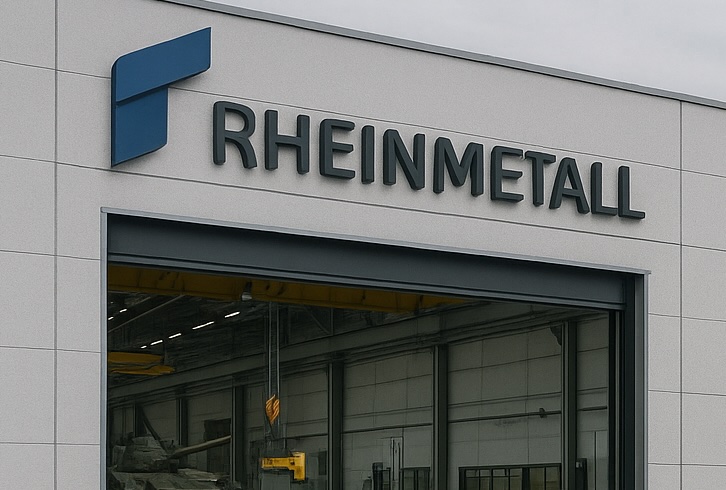


On October 28th, as reported by Reuters, Sofia and the German arms giant signed an agreement to build a factory for gunpowder and 155mm artillery shells — a project that is at once a national rescue of a shrinking defence base and a signal to Brussels and NATO that Eastern Europe intends to be a maker, not merely a buyer, of munitions.
Rheinmetall will hold 51 per cent of the joint venture, with Bulgaria’s state-owned VMZ taking 49 per cent, and Sofia plans to fund its stake using the EU’s SAFE facility for defence investment. That split — majority private, substantial local ownership — is a deliberate formula: it gives the German group control over technology and management while tying national prestige and employment directly to production. For Bulgaria, the project promises the political gold standard after years of industrial drift: roughly 1,000 jobs, restored industrial capability and the chance to reassert strategic relevance inside NATO.
The timing could scarcely be more calculated. Western armies’ demand for medium- and heavy-calibre ammunition has surged since Russia’s 2022 invasion of Ukraine, exposing critical shortfalls in EU production capacity. Berlin, Brussels and allied capitals have been experimenting with mechanisms to underwrite rapid defence expansion; Sofia’s use of the SAFE loan — corrected in Reuters’ reporting from an earlier misnomer — places the Bulgarian project squarely within the EU’s evolving arsenal of financial instruments aimed at strengthening the continent’s industrial base. If the SAFE mechanism succeeds here, it will become a template for other member states seeking to combine private-sector discipline with public underwriting.
There are, however, unavoidable questions. A 14-month construction timetable, cited by Rheinmetall’s chief executive Armin Papperger at the signing, reads as ambitiously optimistic. Defence manufacturing — especially of volatile substances such as gunpowder and precision-charged artillery — requires painstaking safety systems, regulatory approvals and workforce training. Rushing to meet political deadlines risks cost overruns and, in the worst case, accidents that would be both tragic and politically toxic. The promise of speed is politically useful; engineering realities are less pliable.
Strategically, the plant reduces Europe’s dependence on a small number of Western suppliers. That diversification has a clear military logic: ammunition is the quintessential consumable in modern war, and shortages can decide campaigns faster than debates in committee rooms. More subtly, Bulgaria’s gamble speaks to how smaller EU members can leverage geopolitical friction to extract technology transfers and investment from larger continental firms. It is a model for other Eastern flank states that have watched defence industrial policy being reshaped by both US rearmament and intra-European rivalries.
But the arrangement also raises perennial concerns about the militarisation of economic policy. For Bulgaria, the deal creates an industrial dependency on Rheinmetall’s platforms and supply chains. In times of diplomatic tension — whether over procurement decisions, political criticism or broader EU disputes — Sofia could find itself between the commercial interests of a major German conglomerate and the strategic imperatives of national sovereignty. Conversely, for Rheinmetall, the investment deepens its footprint in a region keen to attract jobs and capital; that provides leverage but also ties the company’s reputation to the conduct of the Bulgarian state. The interplay of corporate interest and national identity will be watched closely in Brussels.
There are domestic political dividends to be mined too. The signing, attended by Bulgaria’s prime minister and Rheinmetall’s CEO, is being presented as a revival of Bulgaria’s manufacturing heartland. For governments in Sofia, such tangible job creation can blunt criticism of broader economic malaise and serve as proof that EU funds can be marshalled for sovereign ends. Yet political short-termism can distort procurement choices: projects framed around immediate employment may not always align with long-term strategic or export market realities.
Finally, the deal is a reminder that Europe’s defence industrial renaissance will not be driven by rhetoric alone. It will be won by deals that stitch together finance, private-sector engineering and national will. If the Sofia plant meets its construction and production targets, it will be touted as a textbook example of rapid capacity expansion. If it falters, the lesson for Brussels will be equally clear: incentivising speed without ensuring governance and industrial resilience is a recipe for disappointment. Either way, the project crystallises a new phase in European defence policy — one where small capitals can summon big industry to their doorstep and, in doing so, recast the strategic map of the continent.
Rheinmetall opens Europe’s largest artillery ammunition plant in Germany